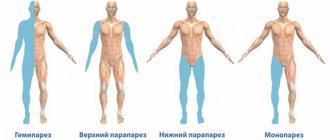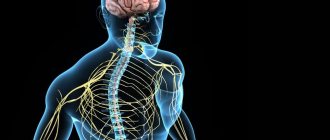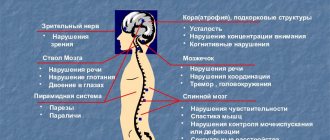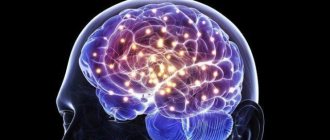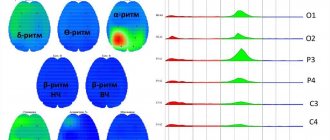- home
- News
- Why do you feel dizzy when you quit smoking?
After quitting smoking, you may often feel dizzy. This is one of the withdrawal symptoms. It begins just a few hours after the last cigarette smoked and lasts up to three weeks. This is a normal reaction associated with a deficiency of nicotine, which was previously involved in regulating the activity of the central nervous and autonomic nervous system and suddenly stopped supplying.
Why does dizziness occur?
In people who smoke, nicotine constricts arterial vessels, keeping them toned. Its effect is due to its similarity to acetylcholine, an organic compound involved in the regulation of brain function. It is necessary to transmit nerve impulses to narrow the vascular walls. When a person smokes, the production of acetylcholine decreases because it is replaced by nicotine molecules (nicotine and acetylcholine molecules have similar chemical structures). After quitting smoking, a period begins when acetylcholine is not yet produced in sufficient quantities, but is no longer replaced by nicotine. The tone of the vascular walls becomes reduced, the pressure decreases, and the person feels this as weakness and dizziness. In hypotensive patients, the head may feel especially dizzy, vomiting, nausea, and deterioration in concentration are possible.
When smoking, the blood contains less oxygen - it is partially replaced by carbon dioxide. In smokers, this provokes oxygen starvation, to which the body gradually adapts. When a person stops smoking, the reverse process begins. Blood oxygen saturation increases sharply, and this can make you feel worse, causing dizziness and headaches. Such symptoms disappear within a few days as the body adapts.
Another possible reason is a change in the functioning of the central nervous system. Nicotine has a short-term stimulating effect on the brain. If a person abstains from his habitual smoking of tobacco, nicotine ceases to have its stimulating effect. This provokes irritability, aggression, and apathy. Sleep disturbances and fatigue often occur. Dizziness appears against the background of a general deterioration in health.
Psychotherapeutic treatment
If a person wants to get rid of the very root of the disease, from internal psychological causes, a psychotherapist or psychologist will help him with this. This process may take several weeks or months, but it is worth it.
With the guidance of a professional, you will understand what exactly pushed you down the path of addiction and you will be able to get rid of bad habits of thinking and attitudes. A specialist will help you get used to life without the use of artificial stimulants, using psychotherapeutic techniques for treatment.
How quickly will withdrawal go away?
It is believed that in smokers it passes quickly and in a mild form. The malaise is mild, and the head is dizzy or hurts only from time to time, not constantly. Dizziness will appear less frequently and last less each day. Symptoms of physical withdrawal completely disappear within 2-3 weeks, usually much faster, in just a few days. The exact period depends on the state of health, smoking experience, the number of cigarettes smoked per day, lifestyle, and how treatment for tobacco addiction is organized.
Nicotine is a legal drug
It's hard to wrap your head around it, but nicotine is a drug. Cigarettes are sold everywhere, and only in recent years have restrictions on the sale of tobacco products been tightened: it has become more difficult for teenagers to buy them; in stores, packs of cigarettes are hidden from prying eyes in special locked cabinets. Naturally, it is hard to believe that the drug can be sold in the open.
The method of drug use also plays an important role in the frivolous perception of tobacco addiction. The cigarette is easy to smoke. Even a Spartan meal for alcoholics requires minimal preparation, and you don’t need company to smoke a cigarette; you can even ask the first person you meet for a lighter. And the process itself seems harmless and safe. True, for the time being.
How to reduce dizziness?
This symptom cannot be ignored. It can be quite dangerous, and it is important to monitor your well-being while withdrawal symptoms pass. Medical doctors recommend:
- if you start to feel dizzy, it is better to sit down for a while, lie down, and rest until your health returns to normal;
- with low blood pressure, to increase it, you need to drink black tea or coffee with sugar;
- It is better to avoid heavy physical activity, severe stress, and anxiety. At the same time, playing sports and habitual exercise are useful and help improve both mood and well-being;
- it is important to maintain a sleep schedule, get enough sleep, get enough exercise, and find activities that will help distract you from thoughts about smoking;
- nutrition must be correct. Vegetables, fruits, fish, seafood are healthy. You can eat more chocolate. Meals should be regular (hunger can cause dizziness);
- contrast shower in the morning. Restores the mechanisms of blood pressure regulation;
- walk more in the fresh air. Fast walking and light jogging are useful;
- It is undesirable to provoke dizziness: climb to great heights, watch 3D videos, ride attractions.
If you feel very dizzy and often, have problems with concentration, headaches, you should temporarily stop driving or work with complex or potentially dangerous equipment. If such symptoms persist for more than two to three weeks, you should additionally consult with a narcologist. To make withdrawal easier and faster, it is better to seek the help of a doctor in treating nicotine addiction. Narcologists use maintenance therapy, which helps to eliminate the symptoms of withdrawal syndrome as much as possible.
Treatment of nicotine addiction in
You can receive treatment for nicotine addiction in our drug treatment center. The advantage of this choice is that we cooperate with the best clinics in Russia and can offer a large number of methods for quitting smoking. As you have already noticed, an individual approach in treating this addiction is extremely important.
Most smokers delay seeing a doctor, either postponing solving the problem for an indefinite period of time, or making numerous fruitless attempts to get rid of the disease on their own. This, of course, is the right of every person, it is even spelled out in the laws of the Russian Federation. But your body suffers irreversible damage. I wouldn’t want to scare anyone, however, during this time you may develop some serious disease, sometimes incurable.
Therefore, there is no need to take risks; now treatment for addiction can be carried out gently and painlessly if you use the qualified help of a narcologist. You can learn more about the treatment of nicotine addiction from our consultants at any time. The toll-free call center number is listed on the page, call and ask your questions, because this does not oblige you to anything.
What to do
What to do if you quit smoking - you feel sick, and you can’t devote a lot of time to your health and get proper treatment?
To get rid of nausea and quickly restore your health, it is recommended:
- visit a doctor and make sure that nausea is not associated with gastrointestinal pathology;
- exclude from the diet all fatty, fried, salted, smoked and other foods that are difficult to digest and assimilate; if you have nausea, it is especially harmful to eat any processed foods, spices, carbonated drinks;
- eat frequently, in small portions and slowly, slowly - ideally you need to divide your daily intake into 6-7 parts and eat every 2.5-3 hours;
- drink a lot of clean water - also drink in small doses, but often, without allowing the stomach to overfill;
- Avoid sudden movements, bends and turns - especially after eating.
Relief of condition
To improve your well-being, just follow simple rules:
- Stay outdoors more.
- Eat only healthy food.
- To drink a lot of water.
If a person is in the process of giving up an e-cigarette, he should not stop smoking, but take more vitamins. Good sleep will help your nerves and give your body time to recover.
Full sleep
With a lack of sleep, a person’s blood pressure increases, dizziness, the hormone cortisol is produced, and depression develops. Having adequate sleep, the body has time to renew itself and rest, the immune system is strengthened, and fatigue goes away. Healthy sleep is the key to health.
Avoid stress
Do I often feel anxious when I don't smoke for a long time? Nicotine damages the nerves of the brain and develops a sense of addiction. To overcome this, you need to find a source of satisfaction, divide the information you want to learn into parts, and immerse yourself in dreams.
Breathe fresh air
Clean air improves breathing, normalizes metabolism, and increases the tone of blood vessels. Being outside for at least 30 minutes a day is the key to good health.
Green tea
This drink lowers cholesterol levels, cleanses blood vessels - they become elastic, and reduces the risk of cancer. This is a kind of prevention for the body.
Cold and hot shower
Hardening the body consists of dousing the body alternately with cold and hot water. Cold and hot shower:
- improves thermoregulation of the body;
- reduces the risk of diseases;
- strengthens the immune system;
- improves blood circulation;
- trains muscles;
- has a good effect on the endocrine system.
Good vacation
Adequate rest improves brain performance, clear thinking, and body recovery. Rest is the body's prevention of disease.
Electronic cigarettes and hookahs
Refill liquids contain ammonia, glycerin, flavoring, water and nicotine. When these substances enter the body, they are absorbed into the lungs and within 7 seconds affect the brain.
Regular smoking exposes the body to many diseases caused by smoke consumption.
What to do if you feel dizzy for a long time?
- Going out into the yard improves blood circulation and enriches the blood with more oxygen.
- Try to lie down so that your body relaxes.
- If it doesn’t help, call an ambulance.
Medications
| Betasek | 1 tablet 2 times/day |
| Tiklid | 1 tablet 2 times/day |
| Relanium | 0.5 tablets twice a day |
| Cinnarizine | 25 mg three times/day |
| Flunarizine | 4-5 times/day |
Folk remedies
The idea of how to quit smoking comes to everyone, but not right away:
- Peppermint tea is the most effective remedy for dizziness.
- Citric acid dissolved in water will relieve headaches.
- A drink made from linden blossom will relax you and give you a feeling of calm.
Massage
You can stop dizziness with massage. Press with your fingers and make circular movements in the area of the temples, nose, neck, and above the upper edges of the ears. The procedure takes 4-5 minutes.
The harm of passive smoking
A passive smoker suffers no less than a regular smoker. Nicotine, aldehydes, acrolein negatively affect the nerves, impair the functioning of the blood circulation and genitourinary organs. Passive smoking, like active smoking, increases the risk of disease.
The effect of smoking cigarettes on the human body
If smoke regularly passes into a person’s blood, processes begin that negatively affect the body:
- Cough.
- After smoking I feel nauseous and unsteady.
- After smoking you feel dizzy.
- Circles appeared under the eyes.
- The skin has become less elastic.
- Taste buds become dull.
- Metabolism worsens.
- It begins to darken in the eyes and taste bitter in the mouth.
- Shortness of breath appears.
The above symptoms indicate that it is time to quit smoking!
Symptoms of cigarette overdose
Nicotine intoxication occurs when too much of this substance enters the body. The body cannot cope with so many toxins, poisoning occurs. It does not matter in what form the nicotine was consumed - from cigarettes, nicotine patch, gum, nasal spray or inhaler.
In case of chronic nicotine overdose as a result of frequent cigarette smoking, the following symptoms are most often observed:
- anxiety state,
- the appearance of cold sweat,
- acute headaches,
- dizziness,
- muscle twitching,
- tingling under the skin,
- increased heart rate and pulse,
- increased blood pressure,
- fatigue, weakness,
- poor appetite
- pressing pain in the chest area,
- nausea, vomiting, diarrhea,
- stomach pain,
- breathe heavily,
- hearing or vision impairment may occur.
If one or more of the listed symptoms appears, you should immediately contact a narcologist.
Stomach hurts after smoking
Nicotine is a poison, and in large quantities it leads to disruption of intercellular metabolism, which leads to cell starvation. As a result, a person may experience headaches, muscle pain, and stomach pain.
Gag reflex when smoking
The symptoms of nicotine poisoning are similar in many ways to food poisoning. The body strives to remove toxic substances, so it uses all its resources. And its first action is the gag reflex, which clears the stomach of all contents, which allows reducing the concentration of nicotine in the body.
Chest pain after smoking
Due to smoking, the human lungs suffer the most, since the main dose of toxins falls on this organ. Therefore, heavy smokers often experience chest pain.
Weakness after cigarettes
Alkaloids disrupt the functioning of all organs and systems, establishing oxygen and vitamin-mineral metabolism between cells. At the same time, the body throws all its strength into the fight against toxic substances. For these reasons, a person experiences weakness and fatigue.
Fainting from smoking
A large dose of nicotine can lead to muscle spasms in the respiratory system. As a result of an acute lack of oxygen, a person loses consciousness and faints. In some cases, this condition can develop into a coma and even lead to death.
Find out treatment recommendations without leaving home for free
To select a treatment plan, you just need to leave a request, we will contact you to select the time and specialist you need
Submit your application
Nausea after cigarettes: reasons
Nausea after smoking is due to the entry of toxins into the body. The following reasons can provoke it:
- spasm of the gastric walls caused by their irritation by substances ingested with saliva;
- irritation due to gastrointestinal ulcer;
- activation of the adrenal glands due to an increase in dopamine in the blood;
- constriction of blood vessels in the brain caused by smoke entering the body.
- contraction of the intestinal muscles, which occurs during poisoning;
- diseases of the oral cavity.
Sick of menthol cigarettes
The danger of menthol cigarettes is that they reduce the harshness of tobacco smoke, which reduces the unpleasant moments of smoking and provokes people to use tobacco products more often. At the same time, the level of nicotine in menthol cigarettes does not differ from conventional analogues. Therefore, nausea from menthol cigarettes is a sign of toxin poisoning.
Sick of electronic cigarettes
Electronic cigarettes are considered a safer replacement for traditional cigarettes. However, their dressing contains a large amount of toxins harmful to humans, which also cause poisoning. Nausea when smoking them is explained by the body’s reaction to the intake of harmful toxins.
Who is at risk
There are a number of factors that can worsen the already harmful effects of nicotine on the body. Dizziness, lack of coordination, weakness and nausea can become a constant companion for a smoker if he:
- abuses alcohol and energy drinks;
- exceeds the daily caffeine intake;
- smokes on an empty stomach;
- overworked and regularly lacking sleep;
- eats irregularly, goes hungry or, conversely, overeats;
- suffers from gastrointestinal disorders;
- takes medications whose effect is enhanced by nicotine;
- suffers from obesity;
- is regularly exposed to other toxic substances (for example, his work involves chemical reagents and toxic substances);
- has a weak vestibular apparatus;
- suffers from vegetative-vascular dystonia.
If you regularly feel dizzy after smoking, you should listen to the signals that the body gives in the form of additional unpleasant sensations in order to eliminate the factors and risks that aggravate the condition.
Nicotine hit
If after smoking a person begins to feel dizzy, has nausea and the urge to vomit, breaks out in a cold sweat, and the skin becomes pale, it means that a nicotine kick has occurred. It can be caused by the following reasons:
- smoking several cigarettes in a row;
- smoking on an empty stomach,
- smoking immediately after a good night's sleep.
This condition has an extremely negative effect on the functioning of the entire body, especially the heart and brain. It can cause the development of hypertension, atherosclerosis, endarteritis or the appearance of malignant tumors.
CODING FROM SMOKING
Signs of acute nicotine poisoning
When consuming large amounts of nicotine in a short period of time, acute intoxication occurs due to a sharp increase in the level of toxins in the blood. In this case, the person experiences the following symptoms:
- pale skin;
- unsteadiness of gait, loss of coordination;
- sudden jumps in blood pressure and pulse;
- increased sweating;
- pain in the abdomen, head, muscles;
- the appearance of convulsions, shaking hands;
- blue discoloration in the area of the nasolabial triangle;
- impaired vision, swallowing, speech.
If you suspect acute nicotine intoxication, you should immediately seek medical help.
Consequences of nicotine overdose
Large doses of nicotine and cases of intoxication with this substance can lead to the development of the following diseases:
- diseases of the cardiovascular system;
- hypertension;
- disorders of the thyroid gland;
- liver or kidney disease;
- asthma;
- diabetes;
- chronic respiratory diseases, including cancer.
A state of acute intoxication can lead to paralysis of the muscles responsible for the functioning of the respiratory organs or heart, which will lead to respiratory arrest and falling into a coma. Without timely medical intervention, death from poisoning occurs.
Causes of nicotine poisoning
Nicotine intoxication can be acute or chronic. The first is due to the intake of a large amount of tobacco toxins into the body over a short period of time. In the second form, cigarette poisoning occurs regularly when a person smokes too much tobacco daily
The reasons for the appearance of signs of acute intoxication may be:
- Smoking cigarettes on an empty stomach;
- Excess nicotine in the body (consuming a large dose of nicotine in a short period of time);
- Child eating tobacco;
- Combining anti-smoking products (patches, chewing gum, etc.) with nicotine and smoking cigarettes;
- Failure to comply with safety measures when working with insecticides containing nicotine, as well as in the production of tobacco products.
Chronic nicotine poisoning can occur not only in heavy smokers, but also in their family members who have to constantly inhale tobacco smoke. When smoking cigarettes, toxic compounds such as arsenic, hydrocyanic acid, and methanol are released into the air. They complicate poisoning both in smokers themselves and in “passive smokers” who inhale cigarette smoke.
REHABILITATION
First aid for nicotine poisoning
If signs of nicotine poisoning appear, you should immediately call an ambulance. Before the doctors arrive, the following measures should be taken:
- Place the victim on the floor or other horizontal surface. To prevent vomit from entering the respiratory tract, you need to turn it on its side.
- To make breathing easier, you need to unfasten the collar of your clothing and loosen the belt.
- If the person remains conscious, you need to give him a weak solution of potassium permanganate to drink, which will provoke gag reflexes.
- After cleansing the stomach, it is necessary to give the victim activated carbon or another sorbent used for poisoning.
- You need to constantly talk to the patient, preventing him from falling asleep.
When the medical team meets, it is necessary to inform about the approximate dose of nicotine consumed and the measures already taken. Mild intoxication can be treated at home or on an outpatient basis. But if the victim’s condition may threaten his life, then treatment will be carried out in a hospital.
References:
- Guide to addictionology / Axelrod B. A. et al. / ed. V. D. Mendelevich. - St. Petersburg: Speech, 2007.
- Information technology for liberation from alcohol and nicotine addiction, depression / M. A. Tetyushkin / “LitRes”, 2014.
- Geppe N. A. Tobacco smoking in children and adolescents: impact on health status and prevention // Practical Pulmonology. – 2007. – No. 3. – P.15-19.
- Nicotine addiction / (psychoactive addictions) / [comp. N. N. Boyko]. – Ed. 2nd, rev. and additional / Moscow: Native Country, 2009. – 198, [1] p. : ill., table. (Russian Security).
Article verified by an expert
Terekhova Anna Vladimirovna
psychologist-consultant on socio-psychological work with addicted clients and their families. More than 10 years of experience.
Similar articles:
Methamphetamine: effect, symptoms and consequences
Consequences of drug addiction
What is LAUGHING GAS?
Stages of alcoholism
What to do if drug coding does not help?

